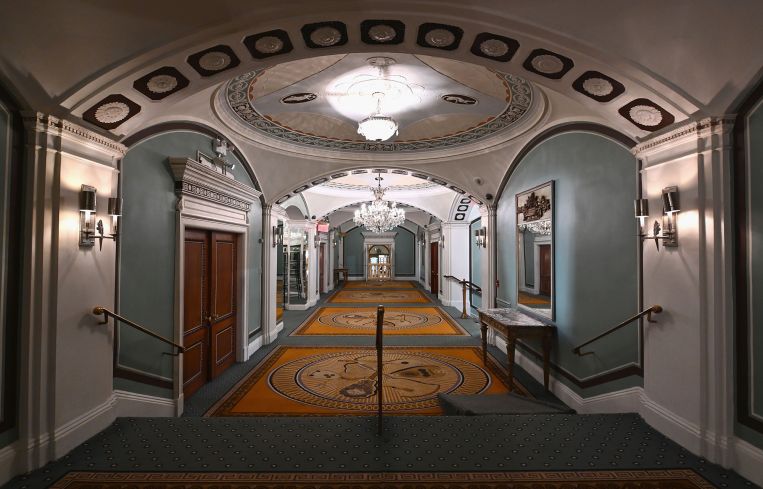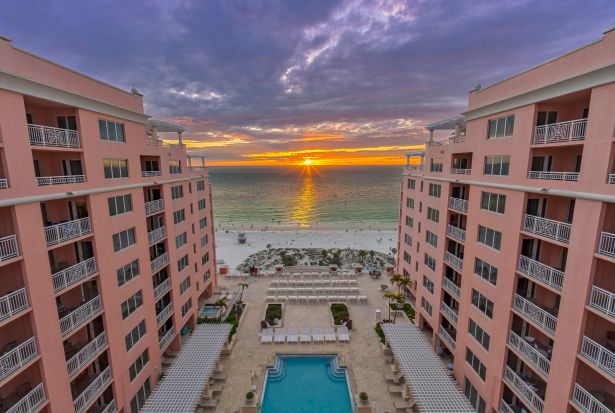Private Equity Firms Pull Back on Investing in U.S. Hotels
They’re usually the busiest investors, but tariffs and a tourism plunge have them spooked
By Celia Young April 30, 2025 1:13 pm
reprints
This year was supposed to belong to the hotel industry — or at least 2025 was supposed to be a better one than 2024. Then came Liberation Day.
Over the past month, hospitality investors have been rattled by President Donald Trump’s tariffs policy, which triggered whiplash in the stock markets as Trump pivoted — and then pivoted again … and again — on the exact extent and amount of these tariffs. And, as the cherry on top, foreign travel to the U.S. nosedived in March amid an immigration crackdown and rebarbative rhetoric from the White House about Canadians, Europeans, Chinese and others.
Among the rattled investors are private equity firms, which are traditionally the largest U.S. hotel buyers. For example, just last year Blackstone snapped up the Hyatt Regency Clearwater for $137 million and bought the W Fort Lauderdale hotel for $153 million. But, as interest rates have risen, private equity firms have become a shrinking share of U.S. hotel buyers since 2021, according to JLL data.

In 2024, private equity firms represented 30 percent of the buyers in hotel deals above $5 million in the U.S., according to JLL. In 2021, that share was 55 percent.
Four years after the COVID-19 pandemic shuttered leisure travels — and most business travel — worldwide, the hospitality industry was finally closing in on its recovery. Average revenue per available room (RevPAR), the industry’s key health measure, crossed pre-pandemic levels in every major market but the Asia Pacific region last summer. Plus, global hotel investment volume ticked up to $57.3 billion — still low by historic measures, but a 7 percent increase from the year before, according to JLL. JLL’s Hotels & Hospitality Group projected that global investment volume would keep rising, likely by 15 to 25 percent in 2025.
“What’s happened in the past 30 days throws a monkey wrench into anything and everything,” said Mitchell Hochberg, president of Lightstone, which owns the Moxy hotel chain as well as several other hotels nationwide. “Now, almost everybody is sitting on the sidelines. Unless there’s a compelling opportunity, people are just going to wait and see.”
But the big question is: Wait and see what?
The answer largely depends on whether Trump’s trade policies mellow out, said Amrik Singh, a professor at the Fritz Knoebel School of Hospitality Management at the University of Denver.
“Right now, we’re on a roller coaster,” Singh said. “With more certainty or more news that provides expectations of stability, then I think you will see movement in the market in terms of hospitality investments, acquisitions or refinancing.”
Singh expected the uncertainty to cause a slowdown in hotel investment, and there were signs as early as March that private equity firms were more hesitant to buy U.S. hotels. Scott Trebilco, a senior managing director in Blackstone’s real estate group, told Hunter Hotel Investment Conference attendees in March that the high cost of capital has made it difficult to invest in U.S. hotels. Mit Shah, CEO of Noble Investment Group, an alternative asset manager in travel and hospitality, called the transactions market “a really wonky environment,” CoStar reported.
Real estate investment trusts, struggling with poor stock performance, have also pulled back, leaving more niche investors to pick up the slack, said Eastdil Secured Managing Director Jeffrey Davis.
“I think we’re seeing a shift of capital allocation in hospitality,” Davis said. “High-net-worth individuals and family offices are emerging as a bigger player in the space. Dedicated hotel funds are also becoming more active in terms of what they will buy.”
And those willing to buy — despite the uncertainty — may have their pick of the crop.
Roughly 35 percent of hotel and motel loans are coming due this year, according to the Mortgage Bankers Association. Some owners will be forced to sell if they cannot refinance or extend their debt amid still-high interest rates, creating an opportunity for buyers to grab properties at a discount, said Ben Rowe, managing partner of the San Francisco-based private equity firm KHP Capital Partners.
“Prior to this, you had many markets that were still dealing with lingering distress tied to the aftermath of COVID, and that has been [followed] by higher interest rates and this more challenging capital market environment,” Rowe said. “All of this additional uncertainty is further impacting values, making refinancing more challenging, and generally exacerbating that distress that was already there. But we’re well situated to take advantage of that market turbulence, and we see real opportunity in moments like this.”
KHP certainly isn’t hitting the brakes. The company announced April 23 that it had secured $300 million for its sixth discretionary real estate fund, which it’s already used to invest in three hotels, including buying the Hotel Viking in Newport, R.I. Given the hit to international tourism, Rowe said regional hotels like the one in Newport may become more attractive to investors because they rely less on foreign visitors.

“We are going to be more cautious around gateway cities and other markets that are more dependent on international inbound demand,” Rowe said.
And while tariffs have caused a lot of economic uncertainty, they will also limit new hotels from coming online, which will help push up RevPAR, Rowe said. Slower hotel construction, coupled with “resilient travel demand,” will help support “the strong fundamentals for the sector,” Blalckstone’s Trebilco said.
Sean Hehir, president and CEO of Trinity Investments, was similarly bullish about hospitality in the long run. He expects international travel to return, and noted that his firm, which partners with private equity to acquire hospitality properties, takes a longer-term view on its assets by underwriting them for a five-year period. (Guess what else will have happened in five years?)
“I do think that we may see a decline in transaction volume as people try and figure out what’s going on, but Trinity’s not taking that stance. We plan to be pretty active,” Hehir said. “There are owners that are going to need to sell. And, if there’s less buyers, that’s less competition for us.”



